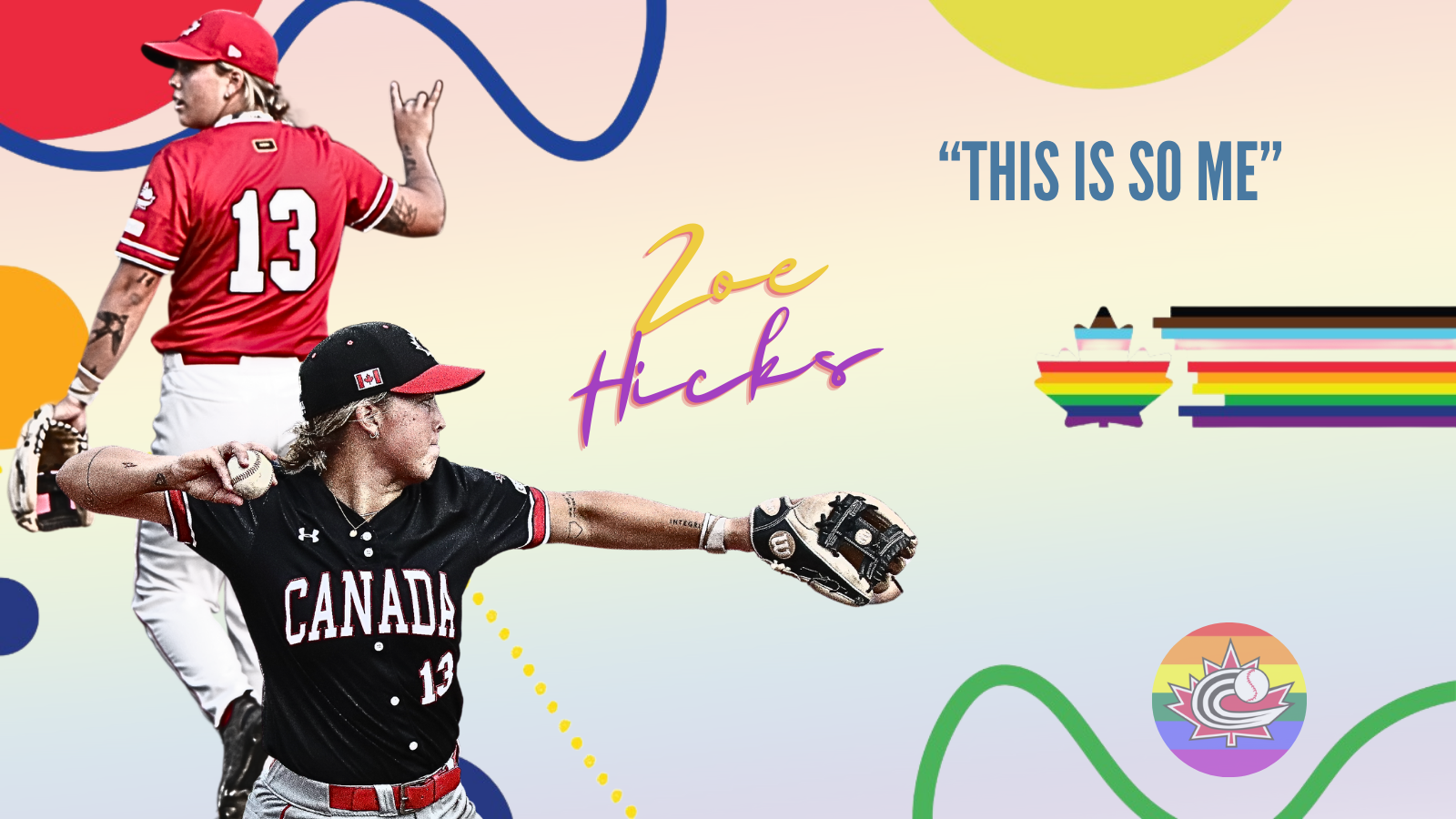
By: Melissa Verge
When her cleats dig into the dirt and she takes her spot at third, Zoe Hicks feels free.
She can be unapologetically Hicks - energetic, passionate, and very, very loud.
The talented third baseman who won the most valuable player award with the Women’s National Team last season, sums it up in four words.
“This is so me.”
Baseball isn’t just what she does, it’s a huge part of who she is, and it’s also played a role in who the 26-year-old has become.
It’s not purely coincidental that the first year Hicks played women’s baseball in 2018, was the year that she felt comfortable to share her identity as a lesbian athlete.
It was baseball, and the relationships she formed that helped her feel more secure with expressing who she was off the field. Playing women’s baseball already felt like a step outside the box for her, and seeing some of her teammates openly express their identities as queer athletes was liberating for her.
“Just to be able to see that confidence, and see these people saying like F You to the societal expectations that they have on us, it kind of just made me say, ‘ok, cool… you don't have to do what people think you should, you don’t have to be what people think you should be,’” Hicks said.
Although she now has clarity, there was a period of time where she was lost and trying to figure it all out. When she went to college, she wasn’t yet aware of her identity - she just knew that she felt a bit different from the friend group she surrounded herself with. Exploring who she was gave her confidence both on and off the baseball field.
After she was open with her identity, that’s when her baseball career really took off, she said.
Last year at the Women’s Baseball World Cup, Hicks had a .667 batting average, and scored three runs and had two RBI’s in a win over Hong Kong.
“You should be able to be yourself in every aspect, in every facet, and that just opens up such a higher feeling for your athletic performance, if you can just play free and be who you are in all senses,” she said.
The Canadian, who grew up in Boissevain, Manitoba, had a bit of an unlikely journey to baseball. She didn't play until she was a 20-year-old.
She was a dominant softball player, and was asked to come be an extra arm on her dad’s senior team one summer. Although it was not love at first at-bat -she got hit with a pitch- she ended up getting a hit in the same game, and she thought, ok. She could figure this whole baseball thing out.
Accepting that invitation has made Hicks a successful dual sport athlete, representing Canada in both baseball and softball at the highest level. She also worked with the Dodgers in 2022 and 2023 as a Technology Associate, analyzing data and passing that information on to coaches in the organization to improve their athletes moving forward. In her second season, she did a lot of infield and hitting work with the Arizona Complex Team.
Since the days of the All American Girls Professional Baseball League, it’s been a definite change for the better, she said. Back then, the uniforms of the league, a “one piece short skirted flared tunic” weren’t chosen for practical reasons, but so players weren’t seen as what the management feared they would be - as “butch” or “lesbian.” There’s now a space and a community for everyone in sport, Hicks said, including herself.
However, it’s definitely far from perfect - sport, and society in general still has further to go, she said.
“We have come a long way, but there is still that pushback, and I think that pushback is what kind of keeps it from being normalized,” she said. “It has to be this big thing because they’re still working against this large amount of hate.”
Thankfully, Hicks was greeted with love and support when she came out to her family in 2018.
It’s been beautiful to witness his daughter really grow into who she always has been, her dad, Allan Hicks said. It was after high school that he really noticed a change in her when she went away to college.
“That's kind of I think where she found a little more safety in kind of realizing where she was at as far as coming out,” he said.
“I’m very proud of her.”
Although Hicks has that familial support, she acknowledges that not everyone in the 2SLGBTQI+ community does. If you’re in that situation, there is a community out there for you, she said, a chosen family, who will embrace you for who you are.
In addition to the support of her family, she has her chosen family, who has also chosen her, in the Women’s National Team.
“I’m most comfortable with my teammates, just because they have embraced me, and they have allowed me to be myself,” she said.